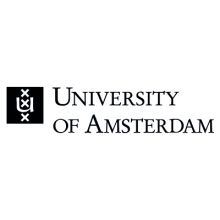Universities’ lack of understanding about the risks of internationalisation is to blame for the “dangerous” backlash against their global student recruitment efforts, a higher education expert has warned amid a global academic debate on the topic.
Last month, Karen Maex, rector magnificus of the University of Amsterdam, delivered a speech in which she argued that institutions in the Netherlands spent too little time thinking about the “optimal balance” between Dutch and international student recruitment and Dutch and English language instruction. She said that universities must “recognise and set the limits of growth in internationalisation”.
A particular concern was that the increase in English-taught bachelor’s programmes had resulted in rapid growth in numbers of non-Dutch students, particularly those from other European countries, who by law can enrol automatically at Amsterdam if they have the right credentials and language skills.
The speech sparked an international debate on how institutions can ensure that they strike the right balance between pursuing their global ambitions and serving the needs of local students and employers.
Hans de Wit, director of the Center for International Higher Education at Boston College, said that it was important to have a “balanced and nuanced” view of internationalisation, but that it had evolved into a “polemic debate between those who are 100 per cent for international students and English [language instruction] and those who are 100 per cent against”.
“The harm is big as there is increasing opposition [to internationalisation] from students, academics, media and politicians – and, in the polarised world we live in, that can lead to extreme counter-reactions, such as stops on recruitment, stops on teaching in English, stops on internationalisation,” said Professor de Wit, who is Dutch.
“That would be more dangerous for Dutch higher education in the context of the global knowledge economy than the current policy. I am optimistic that it will not go in that direction, but already quite some harm is done, and the universities are themselves to be blamed for lack of understanding of the risks of unlimited international marketisation.”
Professor de Wit added that the current balance between the local and the global at universities is “struck wrongly because politics and economics give wrong signals to do more or less [internationalisation] based on political and economic sentiments and not on academic quality”.
But Markus Laitinen, president of the European Association for International Education, said that the notion that internationalisation had gone too far was a “non-issue”.
“I don’t see too many institutions in Europe or around the world that have too many [international students] in my view,” he said, adding that foreign students making up a quarter of first-year student enrolments at the University of Amsterdam, as cited in Professor Maex’s speech, is not “even close to being excessive”.
The debate is not confined to Europe. Last year, the University of California system announced that it would introduce a cap on the proportion of out-of-state and international undergraduate students across its campuses.
Robert Coelen, professor of internationalisation of higher education at Stenden University of Applied Sciences, rejected the idea that international students take away university places from local students, stating that the recruitment of foreign students can be used as a method to preserve a wide range of degree programmes for local students that otherwise would not be sustained.
He added that if universities internationalise for the right reason – “to prepare our young people to be able to operate regardless of the cultural context in which they find themselves” – then there is no issue.
Research universities “can all do with more talented students, wherever they come from”, he said.
Register to continue
Why register?
- Registration is free and only takes a moment
- Once registered, you can read 3 articles a month
- Sign up for our newsletter
Subscribe
Or subscribe for unlimited access to:
- Unlimited access to news, views, insights & reviews
- Digital editions
- Digital access to THE’s university and college rankings analysis
Already registered or a current subscriber? Login











